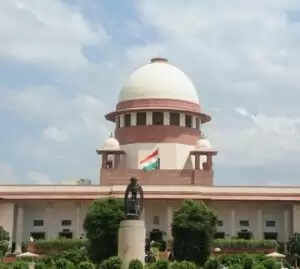Supreme Court Collegium Proposes New Judges for J&K and Ladakh High Court
Judicial Appointments Recommended by Supreme Court

New Delhi: The Supreme Court Collegium, led by Chief Justice of India (CJI) Sanjiv Khanna, has put forward the names of two judicial officers for appointment as judges of the High Court of Jammu & Kashmir and Ladakh.
The Chief Justice of the Jammu & Kashmir and Ladakh High Court, in consultation with his two senior colleagues, had previously recommended Sanjay Parihar and Shahzad Azeem for these positions.
A resolution posted on the Supreme Court's website states, “The Supreme Court Collegium in its meeting held on April 16th, 2025, has approved the proposal for the appointment of the following Judicial Officers as Judges of the High Court of Jammu & Kashmir and Ladakh: (i) Shri Sanjay Parihar, and (ii) Shri Shahzad Azeem.”
According to the memorandum of procedure (MoP) that governs High Court judge appointments, the Chief Justice initiates the proposal.
If the Chief Minister wishes to recommend someone, they must submit the name to the Chief Justice for consideration.
The Governor, upon the Chief Minister's advice, should send their recommendation along with all relevant documents to the Union Minister of Law & Justice promptly, ideally within six weeks of receiving the proposal from the Chief Justice of the High Court. If no comments are received in this timeframe, the Union Minister will assume that the Governor (or Chief Minister) has no additional input and will proceed accordingly.
The Union Minister of Law & Justice will evaluate the recommendations based on any additional reports available regarding the candidates. The complete documentation will then be sent to the Chief Justice of India for further advice. The Chief Justice of India, in consultation with the two senior-most Supreme Court judges, will form an opinion on the candidates recommended for the High Court.
Following their discussions, the Chief Justice of India will send his recommendation to the Union Minister of Law & Justice within four weeks.
Furthermore, as per the MoP, once the President signs the appointment warrant, the Secretary of the Department of Justice will notify the Chief Justice, and a copy of this communication will be sent to the Chief Minister, who will then announce the appointment and publish the necessary notification in the Gazette of India.
